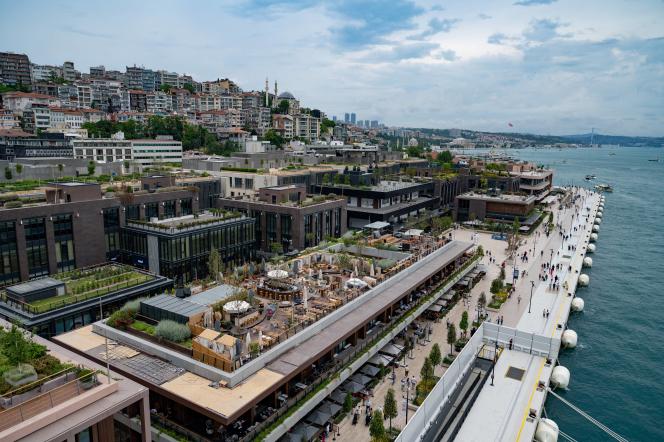Engin, in his fifties and well-fed speech, has always been a restaurateur, from father to son, even long before the appearance of tourists along the narrow and serpentine streets of Karaköy (literally the “black village” in Turkish), port district and long popular on the European side of Istanbul where he grew up and worked all his life. While other merchants converted to street food and trendy cafes, the village child (who prefers not to give his real name) persevered in simple and traditional cuisine, that of vegetables and seasonal dishes.
For a long time, he had heard of pharaonic projects to transform what the neighborhood elders called the “Tuesday market” and known ever since as the Galataport. From the beginning of the 2000s, the renovation and redevelopment plans for this long, fine straight line of just over 1 kilometer, some 100,000 square meters held in brackets by the hills of Pera, the dark waters of the Bosphorus and the Galata Bridge, suddenly multiplied. The place, with its breathtaking view at water level of the mouth of the Sea of Marmara and the Golden Horn, its gigantic warehouses, its old customs buildings and hookah cafes, where the visitor could contemplate for hours the hustle and bustle of the world had something to whet the appetites.
Lack of transparency
The era was one of economic upturn, with all-out investments, supported by the new men of the new Prime Minister, Recep Tayyip Erdogan, supporters of pure and hard neoliberalism. Galataport was to become one of the beachheads of luxury tourism thanks to the transformation of sheds and unoccupied historic buildings into chic hotels and shops. The promoters also hoped to be able to welcome three or four cruise ships every week with their wealthy clientele from all over the world. All this in a protected and secure environment worthy of the greatest shopping malls.
A first call for tenders, launched by the state-owned company Turkish Maritime Enterprises (TDI), was won in 2005 for 3.5 billion euros by the Royal Caribbean Cruises consortium. A case smoothly conducted, but quickly brought before the courts by the Chamber of Urban Planners of Istanbul. Lack of transparency, establishment of a special law removing key powers from the municipality, critics also point to an abnormally long transfer of operating rights (forty-nine years) and a vast privatization of the port area.
You have 47.01% of this article left to read. The following is for subscribers only.
